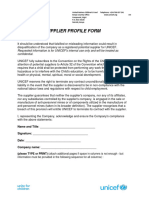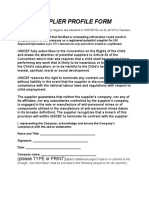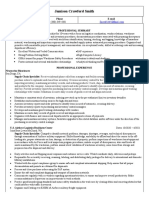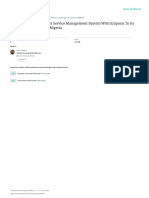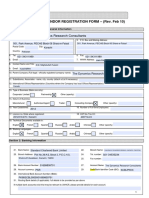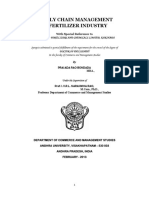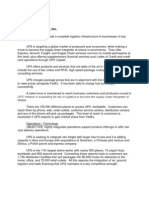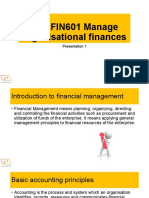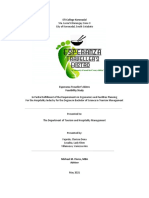0% found this document useful (0 votes)
107 views3 pagesCP SCM Module 3 Transport and Delivery Assignment
The key steps are:
1. Obtain an exemption certificate from the Ministry of Foreign Affairs for the incoming shipment.
2. Ensure Swiftcustoms, the clearing agent, has all necessary documentation for customs clearance.
3. Coordinate closely with Kappatrans, the freight forwarder, and Mary Smith at the warehouse to ensure smooth inland transport and delivery.
4. Monitor Kappatrans' performance closely and address any issues to ensure on-time delivery.
Uploaded by
CII SoL AUM 2021-23Copyright
© © All Rights Reserved
We take content rights seriously. If you suspect this is your content, claim it here.
Available Formats
Download as PDF, TXT or read online on Scribd
0% found this document useful (0 votes)
107 views3 pagesCP SCM Module 3 Transport and Delivery Assignment
The key steps are:
1. Obtain an exemption certificate from the Ministry of Foreign Affairs for the incoming shipment.
2. Ensure Swiftcustoms, the clearing agent, has all necessary documentation for customs clearance.
3. Coordinate closely with Kappatrans, the freight forwarder, and Mary Smith at the warehouse to ensure smooth inland transport and delivery.
4. Monitor Kappatrans' performance closely and address any issues to ensure on-time delivery.
Uploaded by
CII SoL AUM 2021-23Copyright
© © All Rights Reserved
We take content rights seriously. If you suspect this is your content, claim it here.
Available Formats
Download as PDF, TXT or read online on Scribd
/ 3

















